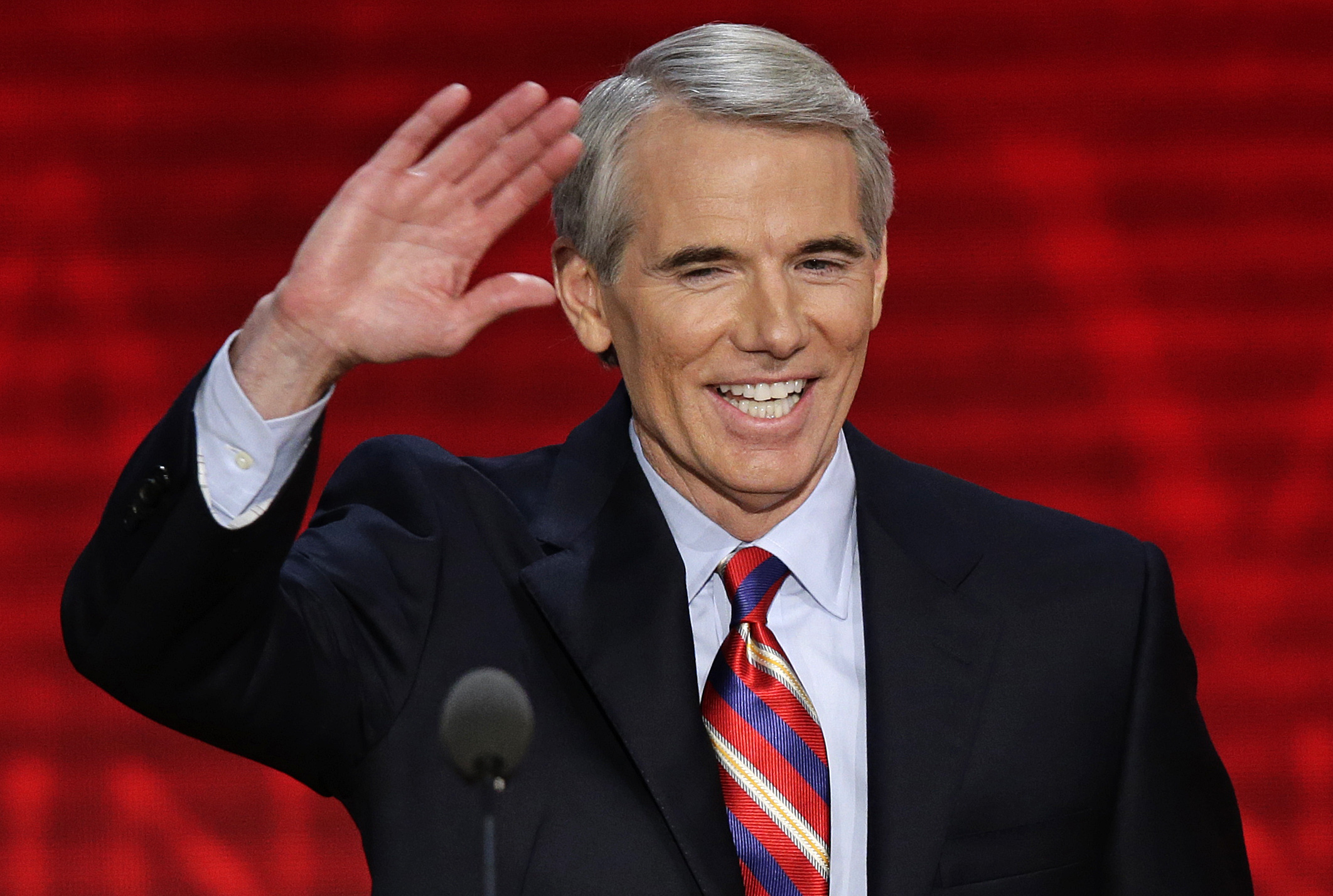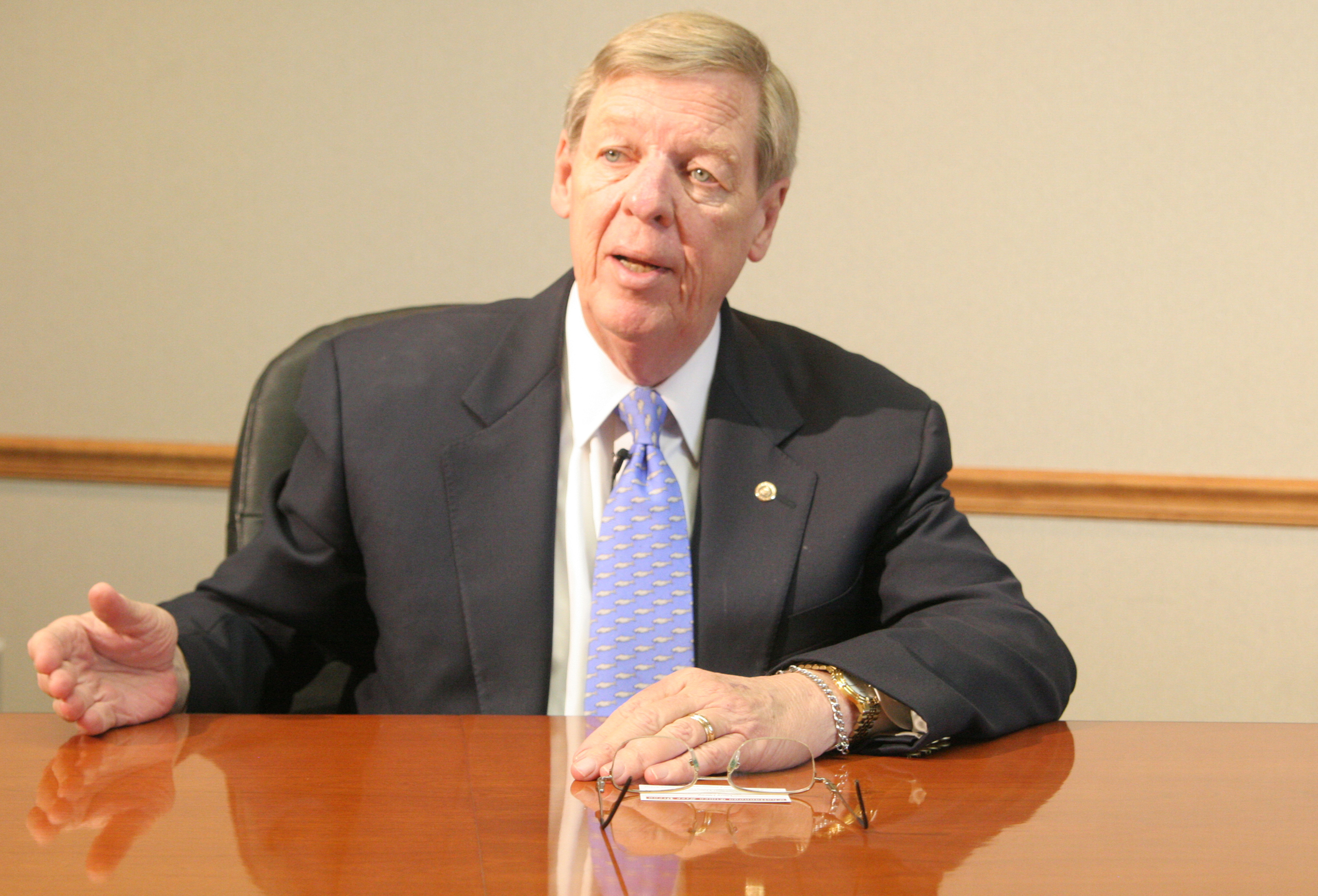CLOSER TO HOME
View related stories: Chattanooga same-sex couple to receive blessing at churchA tempest in my soul: A son's secret brings a Southern Baptist minister to his knees
WASHINGTON - Interviews with Southern conservatives in Congress reveal surprising common ground with U.S. Sen. Rob Portman, the Ohio Republican who reversed himself and announced support for same-sex marriage after his son came out.
A week after Portman's switch jolted the Capitol, the Southerners' comments reflect a broader Republican effort to appeal to young Americans as an increasingly vocal minority gains momentum in a decadeslong quest for equality.
One evolving Republican hails from a state with a checkered civil rights history: Alabama.
On his website, U.S. Sen. Jeff Sessions says he "believes that a marriage is union between a man and a woman." He also notes a history of criticizing courts "when they try to judicially redefine marriage."
But in a brief interview outside the Senate chamber last week, the Alabama Republican sounded a different tune after admitting "tremendous respect for Rob Portman" and his decision to go public.
"I think people are free to marry any way they want to," Sessions said. "But churches are free to set standards for marriage."
In a separate Capitol Hill interview last week, U.S. Sen. Johnny Isakson repeated a long-held personal belief that marriage should be only a heterosexual affair. But when asked what he would do if his three children told him they were gay, the Georgia Republican considered the hypothetical and praised Portman's political 180.
"I love my children just like Rob Portman does," Isakson said, "and I think Rob Portman handled it exactly correct."
Coming on the heels of a Washington Post poll that shows a record amount of support for gay marriage, the interviews demonstrate that even in the arch-conservative South, a few legislators are toning down their rhetoric as a colleague's reversal forces them to reconsider the issue.
But other Republican Southerners said they don't anticipate an ideological shift in their ranks even as the Supreme Court takes up the issue this week.
"I don't see where traditional marriage has let us down," U.S. Sen. Lindsey Graham, R-S.C., said in a bowels-of-the-Capitol interview. "You [could] make the argument, 'Well, why not three people?' I mean, if it's about love, then where are the boundaries?"
But Republican gay rights advocates said Graham's view won't survive as conservatives cater to an empathetic younger generation with socially liberal views. More immediately, the advocates thanked a Republican who made Mitt Romney's vice presidential short list for transforming a formerly abstract debate into something far more personal.
"Rob Portman has changed the dynamic on the floor of the Senate," said Gregory Angelo, executive director of the gay group Log Cabin Republicans. "Now it's a discussion about someone's son.
"Every time Republican senators tell Sen. Portman they do not support civil marriages for same-sex couples," Angelo added, "they're telling him to his face they do not believe his son should have the same ability as their straight sons and daughters to get married and be happy with someone he loves."
LEFT UP TO STATES?
In 2006, Sessions, Isakson and most other Southern Republican senators supported a constitutional amendment that would have outlawed gay marriage for good. But post-Portman, both men describe it as a states' rights issue.
They and other senators note their states' resistance, but appear to have no issue with other states (nine, plus the District of Columbia) that have legalized same-sex marriages.
"The Supreme Court should not intervene and shut out the democratic process on this issue," said U.S. Sen. Bob Corker, R-Tenn. "Currently states have the ability to make these decisions, and Tennessee has passed a constitutional amendment that defines marriage being between one man and one woman."
That right could be in jeopardy as the Supreme Court hears oral arguments in two gay rights cases this week. One involves a California same-sex marriage ban. The other examines the constitutionality of the Defense of Marriage Act, which allows the federal government to withhold an estimated 1,100 benefits for same-sex couples, including the ability to share health insurance and file joint tax returns.
Court rulings don't always reflect popular views, but the Washington Post poll shows that 58 percent of Americans now believe the federal government should recognize same-sex marriage. Just over one-third -- 36 percent -- oppose gay nuptials. That's an exact reversal from a decade ago, when 37 percent favored gay marriage and 55 percent frowned upon it.
Among young adults, support now hovers around 80 percent.
STRONG OPPOSITION
A powerful minority remains opposed to change. Brian Brown of the National Organization for Marriage recently told National Public Radio that the gay-friendly Post polls are "not worth the paper they're printed on."
"There is a concerted effort to pick off Republicans and make us appear divided," he said.
Despite scattered statements of support, Southern Republicans still tend to identify with Brown. Social conservatives still hold considerable sway in national circles; longtime opponents to same-sex marriage were quick to say Portman's reversal didn't affect them in the least.
"Everybody has their own position," U.S. Sen. Saxby Chambliss, R-Ga., said. "Mine hasn't changed."
Later in the week the website Politico quoted Chambliss as saying: "I'm not gay. So I'm not going to marry one."
Meanwhile, U.S. Rep. Chuck Fleischmann didn't hesitate when asked if he would modify his one-man-one-woman stance if one of his three sons was gay.
"My opinion-- theologically and based on traditional conservative values -- would not and will not change," the Ooltewah Republican said.
Both oppose gay marriage.
It's unclear how a gridlocked Congress would react if the Supreme Court upholds gay marriage or strikes it down as unconstitutional. Some anti-gay-marriage senators aren't discussing the issue at all, including a Tennessee Republican facing re-election next year.
"I think Senator Portman's decision is entirely a personal matter for him, which I'm trying to respect," U.S. Sen. Lamar Alexander said.
U.S. Sen. Richard Shelby referred all questions to Portman, declining to comment altogether.
"You need to talk to him," the Alabama Republican said as he entered a senators-only Capitol elevator. "He's the man of the hour."




